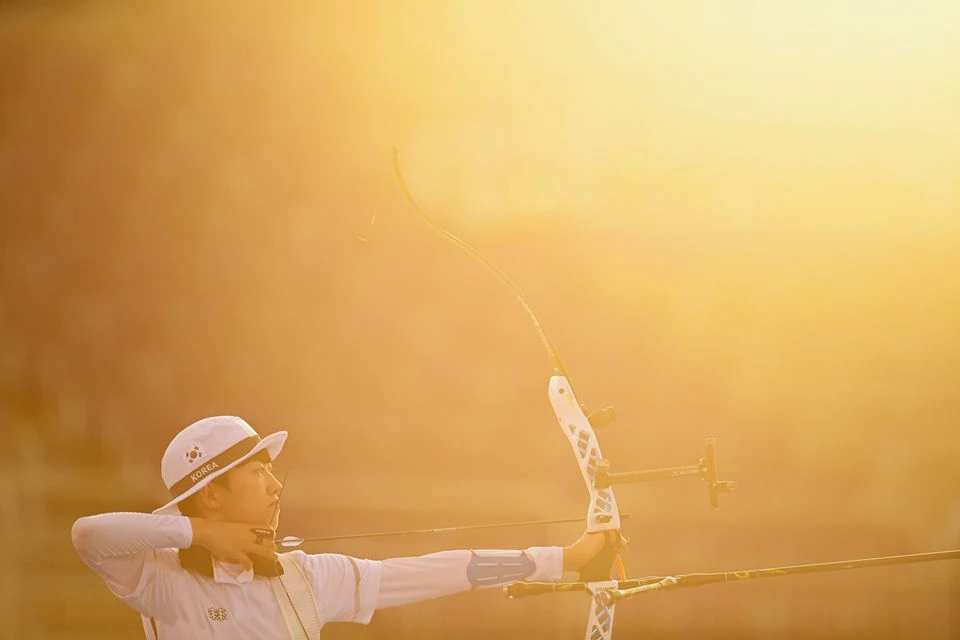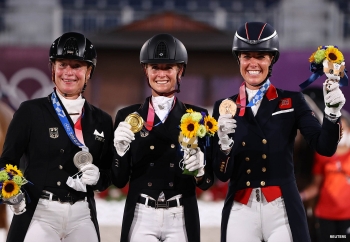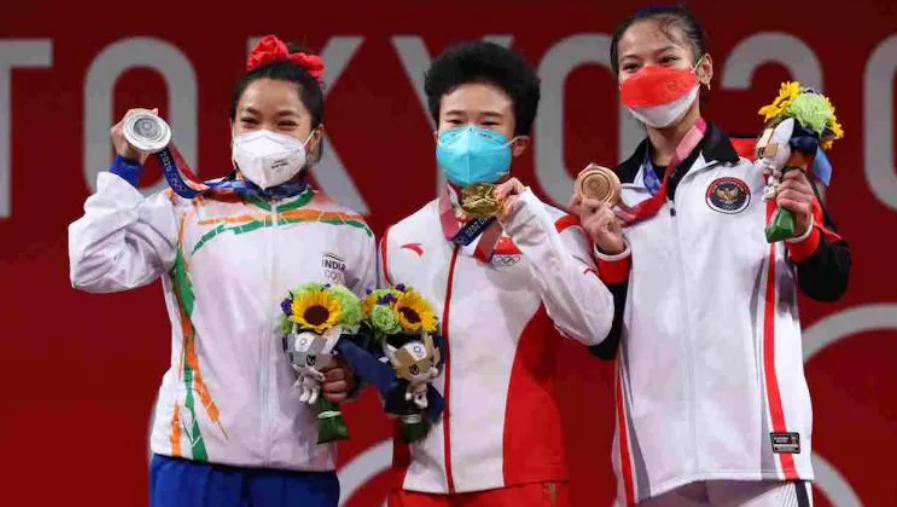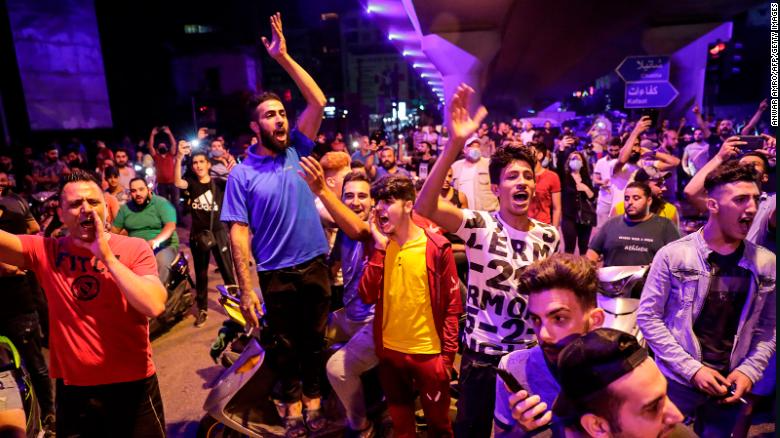Olympic Story of X Symbol: Incredible Raven Saunders Raises Her Voice at The Olympics
Raven Saunders took silver in the shot put on Sunday and later made the first podium protest of the Tokyo Olympic Games.
Saunders, who is black and gay, formed an “X” with her wrists as she held her arms above her head – to represent “the intersection of where all people who are oppressed meet”.
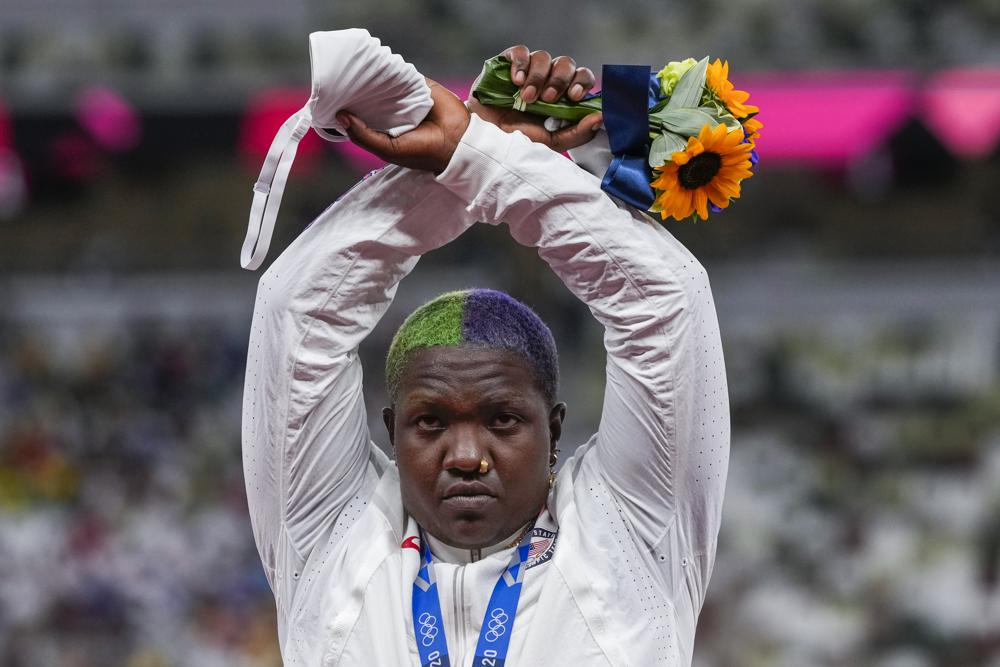 |
| Raven Saunders, of the United States, poses with her silver medal on women's shot put at the 2020 Summer Olympics, Sunday, Aug. 1, 2021, in Tokyo, Japan. (AP Photo/Francisco Seco) |
The International Olympic Committee has banned athletes from protesting on the podium, although they are allowed to “express their views” at press conferences. On Monday, IOC spokesperson Mark Adams said they were looking into the incident but did not elaborate on what punishment, if any, the American would face. “We are in discussions with World Athletics and the United States Olympic and Paralympic Committee,” he added.
Saunders has suffered from mental health problems and paid tribute to her “communities” after her silver medal. She added that younger people were more open to differences than previous generations.
It was never an easy road.
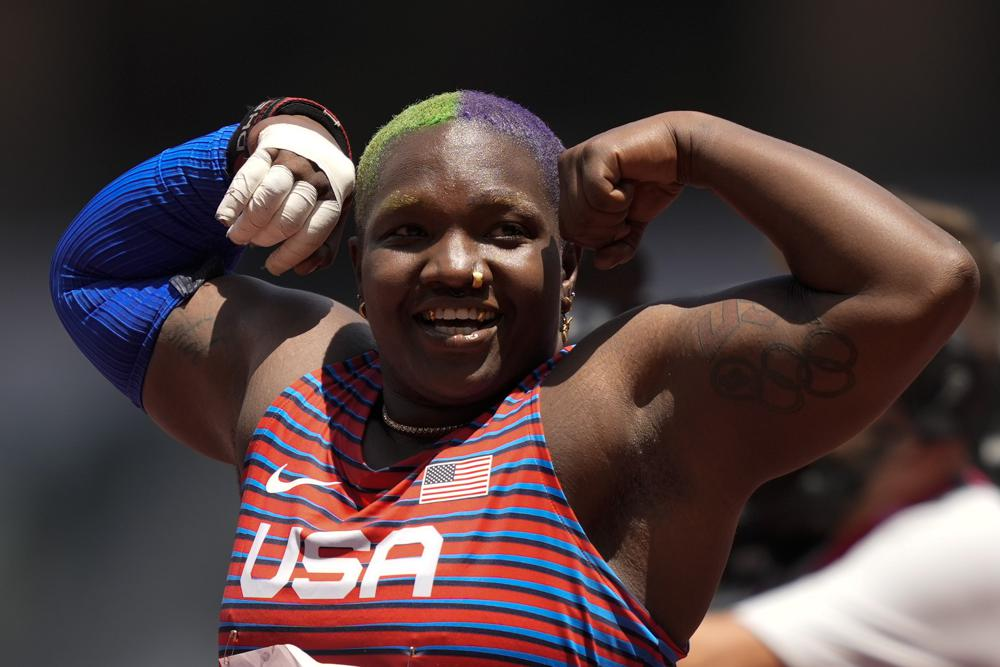 |
| Raven Saunders, of United States, reacts during the woman's shot put final at the 2020 Summer Olympics, Sunday, Aug. 1, 2021, in Tokyo. (AP Photo/Martin Meissner) |
“I feel like the atmosphere around a lot of things, especially when you’re doing so well, is ‘Well, you have everything going for you so you don’t have anything to worry about,’” Saunders said. “Whereas for me, it was like a whirlwind.”
She used her platform Sunday to talk about mental health, especially in the Black community, where she saw depression and other symptoms go untreated and unspoken about for years. “The crazy house,” is what she said some homes were called in the Black community where the symptoms were seen but not checked.
She said these days, some of her friends and classmates see therapists, where they wouldn’t have done that a few years ago.
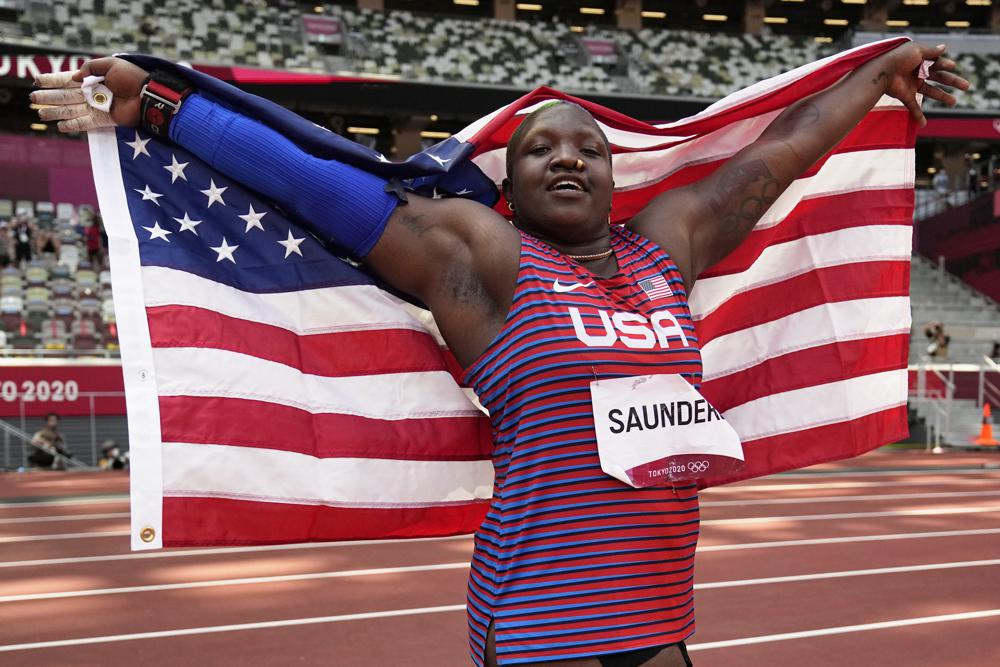 |
| Raven Saunders, of United States, celebrates after her second place finish in the final of the women's shot put at the 2020 Summer Olympics, Sunday, Aug. 1, 2021, in Tokyo. (AP Photo/David J. Phillip) |
“I really think that my generation really don’t care,” Saunders said. “At the end of the day, we really don’t care. Shout out to all my black people. Shout out to all my LGBTQ community. Shout out to all my people dealing with mental health. At the end of the day, we understand it’s bigger than us and it’s bigger than the powers that be. We understand that there’s so many people that are looking up to us, that are looking to see if we say something or if we speak up for them.”
Like many other athletes at Tokyo 2020, most notably Simone Biles, the 25-year-old says she has sometimes struggled with the pressures of elite sport. Saunders added that she had been helped by reaching out to her former therapist.
“It’s OK to be strong,” she said. “And it’s OK to not be strong 100% of the time. It’s okay to be able to need people.”
X: The Symbol of protest
Minutes later, an American fencer, Race Imboden, went to the podium at a different venue after the United States took the bronze medal in foil. He had a circled X written on his hand. In 2019, Imboden knelt during the playing of the national anthem at the Pan American Games.
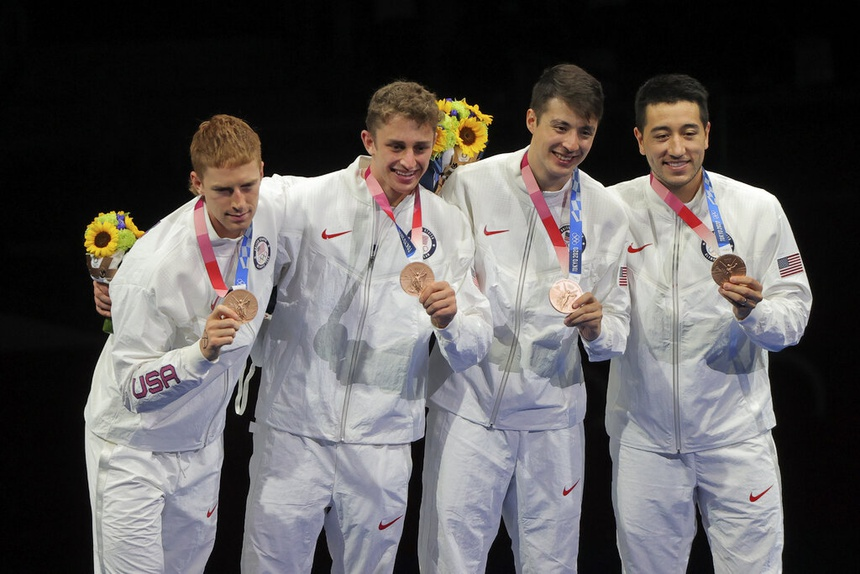 |
| Photo: Reuters |
Photos taken during Sunday’s bronze medal match show that Imboden did not have the symbol on his hand during the competition. It was unclear what the meaning of the mark was, but American Olympics officials said they had begun to hear in recent days that athletes were planning protests.
The I.O.C. and its counterparts for the United States quickly said the other party would be handling the matter, according to New York Times.
From the I.O.C.’s perspective, Saunders’s gesture looked to be a clear violation of the organization’s prohibition on political demonstrations on the podium or during competitions, even though the organization in recent months has relaxed its rules against demonstration in other areas the Olympic committee controls.
The United States Olympic and Paralympic Committee has a different set of rules and has said it will no longer punish athletes who exercise their free speech rights, so long as they are not expressing hate.
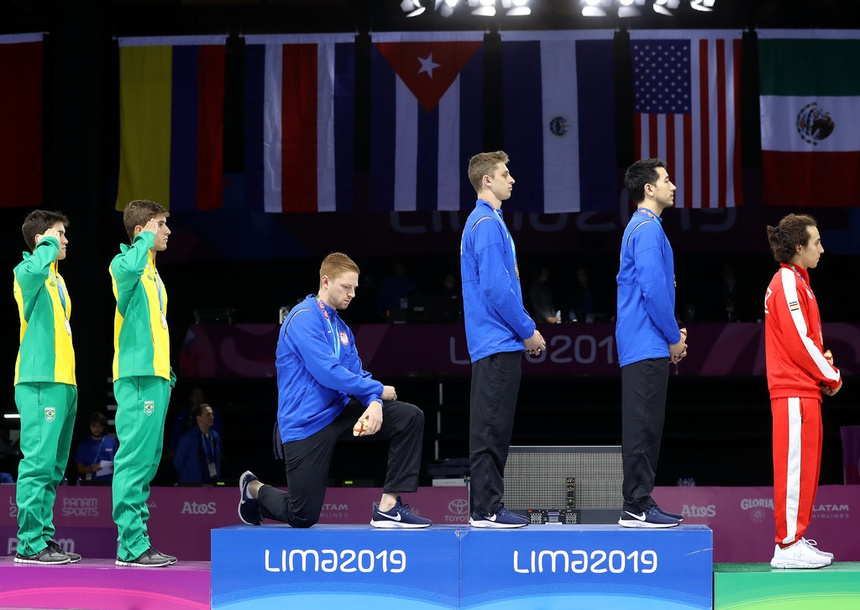 |
| Photo: New York Times |
Saunders could face a wide range of punishments, everything from a reprimand to having her medals stripped and being barred from future competitions. But it is not clear what will happen because the I.O.C. has declined to detail penalties for violations.
Minutes after Saunders’s demonstration, Mark Adams, the chief spokesman for the I.O.C., said the initial decision rests with the athlete’s national Olympic committee, because under the process those organizations are responsible for policing athlete behavior.
Jon Mason, a spokesman for the United States Olympic committee, initially said Sunday night that the organization was reviewing the gestures, but then said that the I.O.C. would be taking the lead. He said American officials had been informed that the I.O.C. would be addressing the matter at its next daily news briefing, on Monday morning.
The wide gap between the I.O.C. leaders and their counterparts in the United States on the issue became public in June 2020 when Casey Wasserman, the leader of the organizing committee for the 2028 Summer Olympics in Los Angeles, urged the I.O.C. president, Thomas Bach, to end the organization’s ban on political demonstrations at the Games.
Then, in December, American Olympic officials announced they would not punish American athletes who spoke out during the Games, so long as they did not express hatred toward or attack any person or group.
The United States has taken the position that it won’t punish or reprimand athletes who make political statements, regardless of what punishment the I.O.C. decides to mete out. National Olympic committees and international sports federations can suspend athletes from competition, and as signatories to the Olympic Charter, they theoretically have to carry out a punishment demanded by the I.O.C.
“If you are BLACK, LGBTQIA+, Or mentally Struggling. This one is for you”
Saunders, 25, has worked as an advocate for racial justice and mental health.
She earned the silver medal by putting the shot 64 feet 11¼ inches. China’s Lijiao Gong won the gold medal with a put of 67-6¼. New Zealand’s Valerie Adams won bronze.
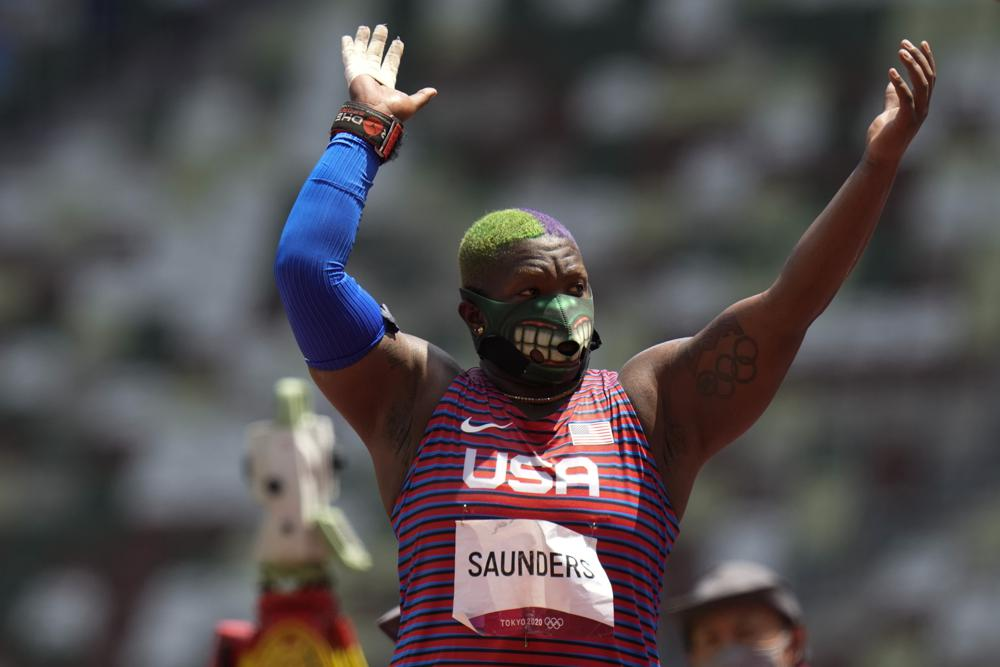 |
| Photo: AP News |
Saunders, who goes by the nickname the Hulk, has been open about her struggle with depression in an effort to destigmatize conversations around mental health.
She took time away from the sport in 2018 after attempting to take her own life. At the beginning of 2020, she signaled her return by tweeting: “If not for sending a text to an old therapist I would not be here.”
She became a breakout star during the U.S. Olympic trials in June, wearing bold masks during competition.
“If you are BLACK, LGBTQIA+, Or mentally Struggling. This one is for you,” she posted on Instagram, shortly after capturing the silver.
Imboden, a left-handed foilist, has been a towering figure in his sport — a three-time Olympian, a former world No. 1 and the first American man to win the overall World Cup title.
But for all his accomplishments on the piste, Imboden, 28, may be best known for being one of two American athletes, along with Gwen Berry, a hammer thrower, to protest during the 2019 Pan American Games.
Imboden said he wanted to highlight issues such as “racism, gun control, mistreatment of immigrants and a president who spreads hate.”
The Pan American Games protest outraged the United States Olympic and Paralympic Committee, which slapped Imboden and Berry with 12 months of probation each, and warned that future protests would result in more severe penalties.
 | Japan: Hotel Business in Tokyo Struggle In The Midst Of Olympics 2020 With the decision of a Olympics without crowds, the stadium for the opening ceremony were near empty, and hotel business were also heavily affected by ... |
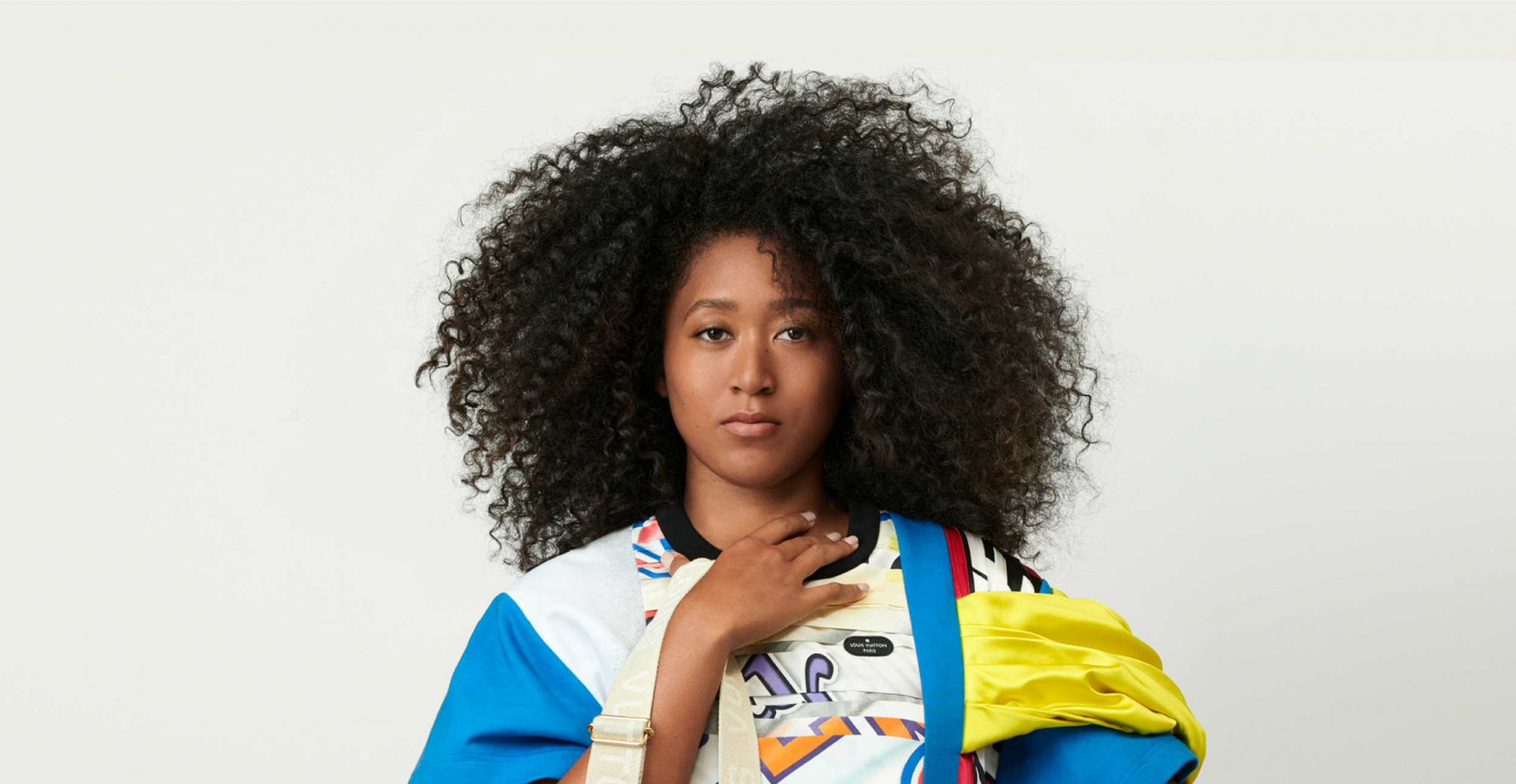 | Who Is Naomi Osaka - The Beauty Lights Olympics Cauldron Japanese tennis star Naomi Osaka had the honor of lighting the cauldron with the Olympic flame, which signaled the start of the Tokyo Olympics. |
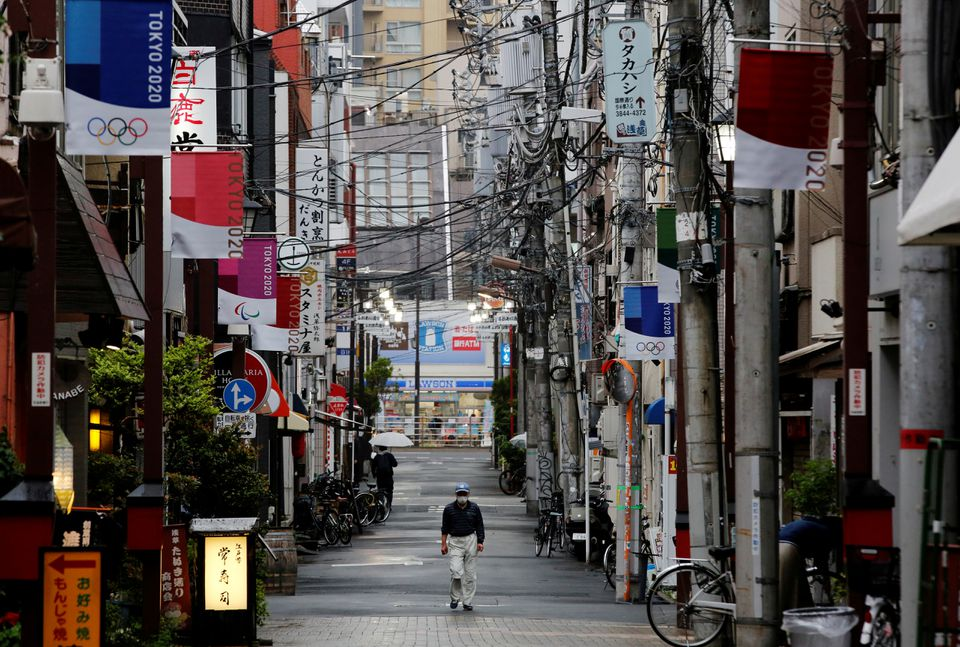 | 'Severe' Covid-19 Cases Surge in Tokyo While New Tropical Storm Spares Olympics Olympic host Tokyo hits record 2,848 COVID-19 cases, seeks more hospital beds while the Japanese Prime Minister said there were no plans to shut down ... |
Recommended
 World
World
India reports 9 Pakistani Aircraft Destroyed In Operation Sindoor Strikes
 World
World
Thailand Positions Itself As a Global Wellness Destination
 World
World
Indonesia Accelerates Procedures to Join OECD
 World
World
South Korea elects Lee Jae-myung president
Popular article
 World
World
22nd Shangri-La Dialogue: Japan, Philippines boost defence cooperation
 World
World
Pakistan NCRC report explores emerging child rights issues
 World
World
"India has right to defend herself against terror," says German Foreign Minister, endorses Op Sindoor
 World
World

